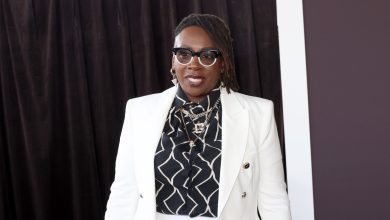Bill Maher Calls for a New Rule on Sexual Assault Amid Diddy Trial

Bill Maher Calls for a New Rule on Sexual Assault Amid Diddy Trial
The ongoing trial of Sean “Diddy” Combs continues to captivate public attention, but Bill Maher argues it has already highlighted the need for a “new rule” in handling sexual assault cases, nearly eight years after the launch of the #MeToo movement.
In his recent end-of-show monologue, Maher used Diddy’s prosecution as a lens to examine how society and the justice system currently perceive sexual misconduct. He noted that “a lot has changed” since the initial wave of allegations against Harvey Weinstein and other high-profile figures in 2017.
Maher emphasized two important points: “First, Diddy is a bad dude – really bad. Like, the worst thing in rap since Hammer pants. A violent, sick—well, alleged violent—individual. He should be locked up.” Second, he asserted that the social standard should evolve so that victims of abuse must leave abusive situations immediately.
The host also highlighted perceived inconsistencies in the testimony of Cassie Ventura, Diddy’s former girlfriend. Maher argued that expecting women to have the agency to leave toxic relationships is not victim-shaming but rather empowering. He criticized the idea of excusing staying in abuse as infantilizing and noted how Diddy’s defense could rely on texts from Ventura expressing enthusiastic consent to their sexual relationship.
A graphic during the show displayed text messages from Ventura to Combs, including one that read, “I’m always ready to freak off.”
Maher reflected on the early days of the #MeToo movement when victims of “OG predators” like Bill Cosby and Harvey Weinstein felt justice was unlikely. At that time, many accused perpetrators were shielded by enablers such as assistants, law enforcement, and agents fearful of challenging powerful figures. For abused women then, Maher said, “If I can’t get justice for my pain, can I at least get a receipt?”
See More ...
He acknowledged the confusing reality of victims sending complimentary messages to abusers but stressed that today’s environment is different. Society is no longer ignoring women’s voices, and support systems are in place for victims.
Statistics confirm that more women have come forward with claims of abuse and mistreatment in the past seven years, Maher noted.
While understanding the difficulty of leaving abusive relationships, Maher called for a societal shift: take every allegation seriously but encourage victims to report immediately instead of waiting years, journaling privately, or trying to handle the trauma alone. “Your only contemporaneous notes about what he did should be a police report,” he said.
Maher also pointed to the complex role of the entertainment industry’s glamour in such cases. He argued that an honest conversation about abuse must include acknowledging what some individuals tolerate for fame and success. “If you want a No. 1 record so badly you’ll take a No. 1 in the face, some of that is on you,” he said. He referenced countless shows emphasizing that “abuse is not love” and abusers rarely change.
Maher concluded with a historical comparison, naming Ike Turner as another “psycho” abuser like Diddy. However, Tina Turner’s escape from that abusive relationship in a time without movements like #MeToo shows resilience. “She did it with 36 cents in her pocket and a mobile card,” Maher remarked.




